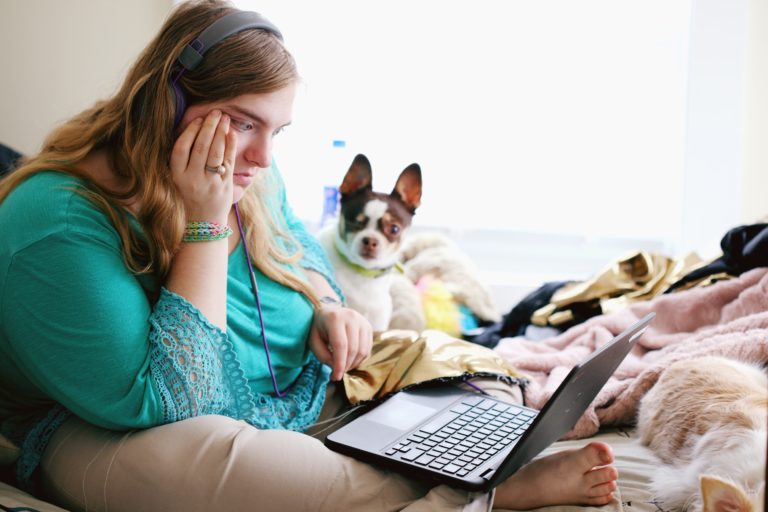Many of us enter in a new year with bright-eyed goals for what we can improve upon as the calendar changes. Despite my misgivings about how “resolutions” tend to co-opted by the diet industry and other marketing schemes, there’s nothing inherently wrong about hoping for better. There’s something powerfully motivating about a beginning.
But I do tend to put my protective hat on around hearing all the ways that we want to be different and better. And it’s not because I don’t believe in the human capacity for change. I couldn’t do what I do if I didn’t hold our capacity for growth as a central tenant.
It’s because I witness a pattern of striving-turned-despair that gets so many of us not only stuck, but demotivated and hopeless. And that’s not good for anyone.
When we think about how how we as humans get motivated, it’s helpful to have a really basic understanding of what scientists call the self-regulation or discrepancy-reducing feedback loop process. It sounds more boring than it is, I promise. We’ll keep this simple, but if you want a fuller explanation, here and here are some good articles.
The basic model is that when we have something that we want to do or change, our brains are constantly assessing:
- what the goal is
- how much effort you are investing
- how much progress we are making toward the goal
Based on these assessments, our brains are then calculating a ratio of how much effort to how much progress we are making. Our brains very much want this ratio to play out in our favor — for our effort to at least match our progress.
But what happens when progress doesn’t happen? There are so many reasons that this could be true.
- Sometimes progress lags behind (or is absent) because the goal wasn’t quite right.
- Sometimes it’s because the type of effort we were exerting wasn’t quite right.
- Sometimes it’s because the progress we expected wasn’t realistic.
- Sometimes we didn’t account for all the factors outside of our effort that would impact the outcome.
And sometimes, and I’d suggest often actually, our expectation of the ratio itself is off. What I mean by that is that we don’t think it should actually be as hard as it is. We go into the situation expecting that if we put in the effort we know to exert, we should be able to achieve the desired goal. It’s the “but it shouldn’t be this hard!” fallacy, and it’s painful.
The problem comes when the ratio is off and we then get critical or shaming toward ourselves. It might sound like:
Marriage shouldn’t be this hard! What is wrong with my partner or me that it’s always this challenging?
I’ve been doing everything I’m supposed to do to stop yelling and being calmer, and I just keep screwing up. I’m hopeless.
My kids never listen to me! I don’t know what the heck I’m doing. I’ve always known that I’m a terrible parent.
I can’t get my ADHD symptoms under control and keep missing deadlines and disappointing everyone. What is the point of trying?
I’ve been trying to have healthier relationships and I find myself in the same old patterns over and over. What the hell is wrong with me that I can’t even fix this?
This is the important distinction:
It’s painful to not experience progress toward our desired goals.
But we suffer when we allow that lack of progress to define who we are as a person.
For some of us, we’re not even sure what it looks like to not attribute our problems with progress to our worthiness as humans. It’s an old pattern that’s hard to think our way out of.
Avoiding the fallacy and shame-spiral means that instead of allowing despair or self-criticism to take hold, we go back to the model from before. We look at things like:
- whether the goal was well defined and realistic for where we are
- whether we have the right tools, support, and and resources to exert the right effort
- whether we have the right ways of assessing our progress
- whether our expectations are reasonable with regard to the effort required, timeline, and amount of progress expected
- whether we’ve accounted for the outside-of-our-control factors that will impact the progress
And so on…
It many ways, it boils down to practicing the art of self-compassion. Self-compassion tells us that it hurts to not make progress toward the things want to change, but that we are not unique or alone in that struggle and that bringing kindness to ourselves through the process is the most effective — and humanizing — approach.
This year, I’m wishing for us all lots of successful effort and satisfying progress, but so more than that, I’m wishing us the kindness and patience that each of us deserve to offer ourselves.


